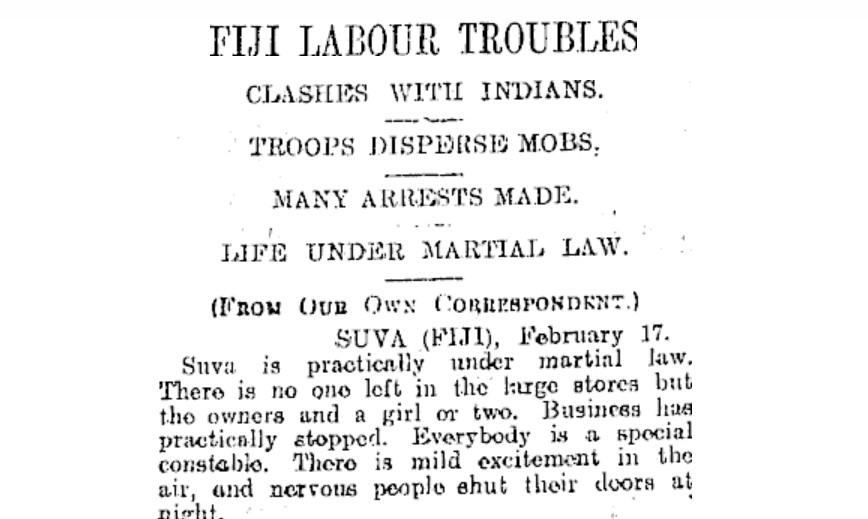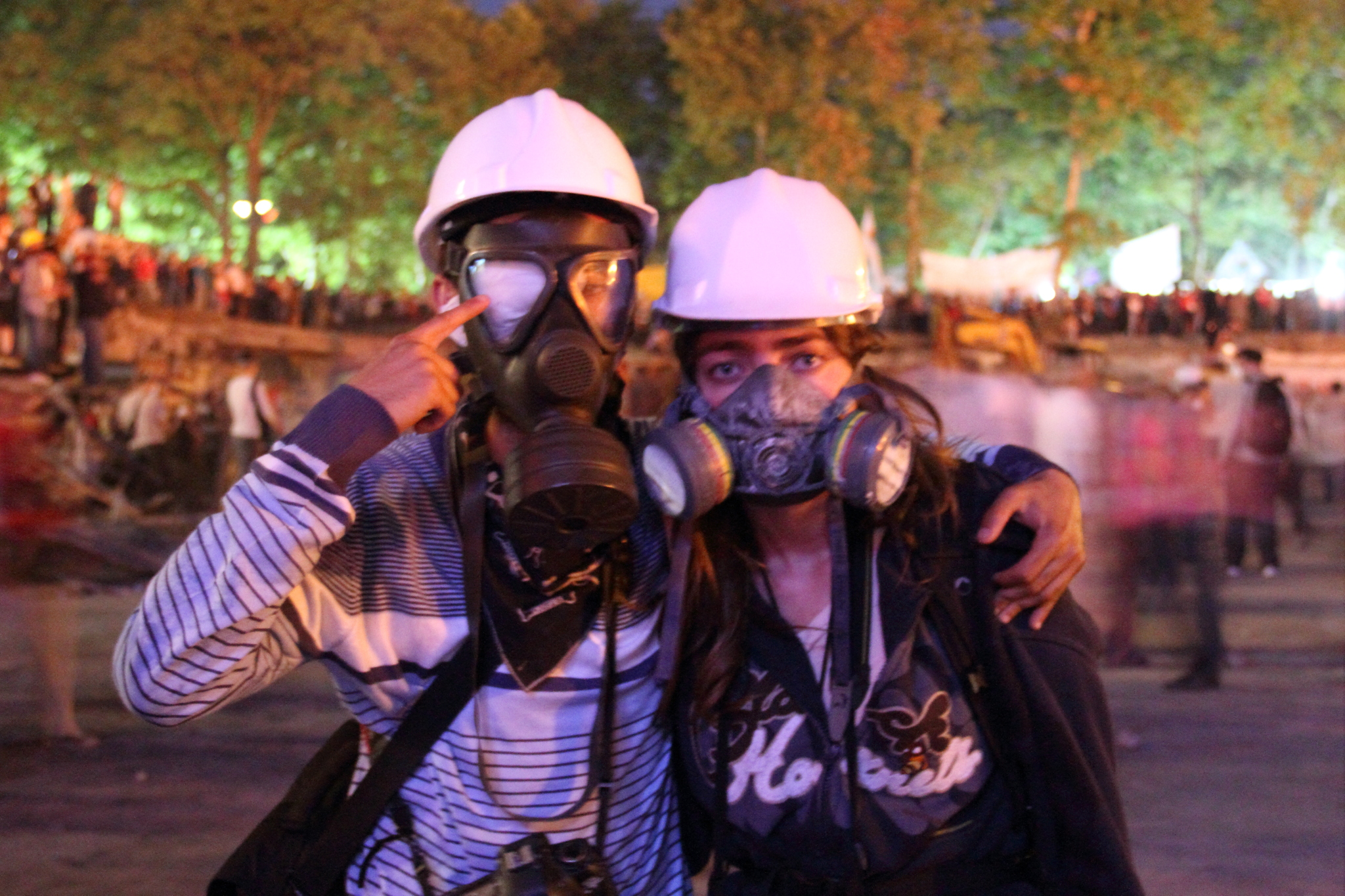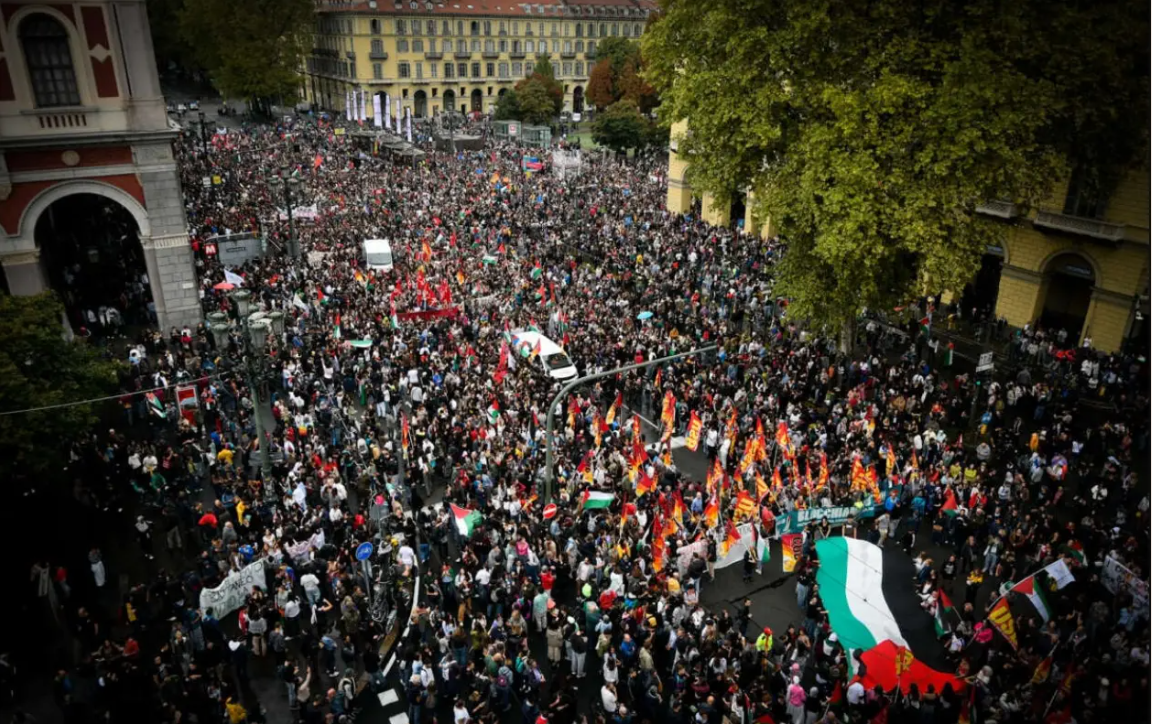The world today seems pretty messed up. Everywhere you look, there are wars going on, people are being ripped off by companies and governments the world over. Racism and sexism is as alive today as it was 20 or 50 or 100 years ago and your average person on the street has absolutely no control over the greater aspects of their world.
This talk is first and foremost about our organisation and our politics – the politics of revolutionary socialism – an economic and political system which proposes solutions to all the major problems present in the modern world – but it’s senseless to talk about a cure without first having a grasp on what the problem is.
We live in a worked completely dominated by capitalism. Capitalism is the social system which now exists in all countries of the world, under which the means for producing and distributing goods (the land, factories, technology, transport system etc) are owned by a small minority of people. We refer to this group of people as the capitalist class. The majority of people must sell their ability to work in return for a wage or salary to be able to survive – this is who we refer to as the working class.
The only source of wealth in society is human labour. Resources have little to no value in and of their own right – only when they have been processed and turned into useful things are they valuable. As such, workers are essentially the source of all wealth. The working class are paid to produce goods and services which are then sold for a profit. Profit is gained by the capitalist class because they can make more money selling what we have produced than what it cost them to pay in wages. In this sense, the working class are exploited by the capitalist class. When a person goes to work, they spend part of their day earning their wages. The rest of the day is then spent making money that goes directly to the capitalist aka boss, regardless of how little they have done to deserve it. Capitalists live off the profits they obtain from exploiting the working class whilst reinvesting some of their profits in order to make even more wealth. Obviously, both classes can’t win. There’s only so much money and goods to go round and if the workers have it, the bosses don’t – these differences are irreconcilable. The constant struggle for workers to improve their conditions and inversely for bosses to increase their profits is called the class struggle.
So this is what we mean when we say there are two classes in society. It is a claim based upon simple facts about the society we live in today. This class division is the essential feature of capitalism. It may be popular to talk (usually vaguely) about various other ‘classes’ existing such as the ‘middle class’, but it is the two classes defined here that are the key to understanding capitalism.
While some professions can be questionable as to whether they are part of the capitalist or working class, there is no ambiguity about the status of the vast majority of the world’s population. Members of the capitalist class certainly know who they are. And most members of the working class know that they need to work for a wage or salary in order to earn a living.
In capitalism, the main motive for producing goods and services is to sell them for a profit, rather than to satisfy people’s needs. The products of capitalist production have to find a buyer, of course, but this is only incidental to the main aim of making a profit, of ending up with more money than was originally invested. This is not a theory that we have thought up but a fact you can easily confirm for yourself by reading the financial press. Production is started not by what consumers are prepared to pay for to satisfy their needs but by what the capitalists calculate can be sold at a profit. Those goods may well satisfy human needs in one respect but those needs will not be met if people do not have sufficient money to pay for the goods.
I feel it’s important to note here that the profit motive is not just the result of greed on behalf of individual capitalists – It’s not a matter of having a bad company or a good company. They do not have a choice about it. Capitalism is based on constant competition between companies and between nations. The need to make a profit is imposed on capitalists as a condition for continuing. If a company ceased to be exploitative – and in turn competitive – in a capitalist economy it would get muscled aside. Competition with other capitalists forces them to reinvest as much of their profits as they can afford to keep their means and methods of production up to date, and forces them to keep their rates of profit as high as possible by keeping wages low and turnover high.
This constant and unending competition, an irremovable party of capitalism, is also the basis of war between nations. Businesses are forced to compete to get a bigger share of the market to increase their profits. As businesses expand beyond the borders of their home nation, they begin to rely on the nations government to protect their interests through trade tarrifs and the like. When that’s not enough, the army is called upon to subjugate foreign nations which act as new markets to sell to. This is the basic principle behind all the wars that have happened in the last hundred+ years.
Everything from the colonialisation of India by the British, through to WW1, WW2, Korea, Vietnam, the Balkans, the gulf war and now the wars in Afghanistan, Iraq and possibly even in Iran soon are caused by governments acting to protect the economic interests of the wealthy companies in their own nations which prop up the government. War isn’t just something that Happens in capitalist society – it is an irremovable part of it.
Clearly, we hold that it is the inherent class division and profit motive of capitalism that is at the root of most of the world’s problems today, from starvation to war, to alienation and crime. Every aspect of our lives is subordinated to the desire for profit. In capitalist society, our real needs will only ever come a poor second to the constant desire for ever increasing profit.
So now we have a basic understanding of the problem. So long as production is geared toward profits rather than human need, wars, exploitation, racism, sexism and destruction of the environment cannot be stopped permanently.
So, what kind of options are there? Many people who think the world is messed up think that the best way to do so is to vote for parties like Labour and the Greens who solemnly promise to make a difference if only you’ll vote them into government. Unfortunately, history shows that the most that these parties can achieve when in power is very minor incremental changes to whatever the prevailing policy regime is. For example, the ’99 election involved the biggest vote for ‘centre left parties’ since 1945, reflecting mass working class opposition to the neoliberal policies of National that made the top 10% of New Zealanders much better off and the majority significantly worse off. Despite an electoral mandate to dismantle the neoliberal policies introduced between 1984 and 1999 all the Alliance/Labour government did, with the support of the greens, was make small adjustments to it, doing nothing to fundamentally improve life for the working class majority of New Zealanders.
Parties like Labour, the Greens and even theAllianceare reformist parties, dedicated to simply managing the existing capitalist society rather than fundamentally changing it in any way. This means that they can do nothing to truly address the systemic inequalities between men and women, Maori, pacific island peoples and pakeha, and absolutely nothing to increase the minimal influence that the majority of New Zealanders have over the decision making of government.
The big problem with these parties is that they are committed to managing capitalism – but it is capitalism itself that generates inequality, mass unemployment, the growing gap between the rich and poor (both on a personal and a national level), military conflict over resources, markets and territory, and environmental destruction. It is entirely unrealistic to think that capitalism can be reformed into a genuinely egalitarian, democratic and environmentally sustainable system.
In a way these parties are similar to other organization like Amnesty International, OXFAM, world vision and the myriad of similar groups who may try and alleviate the worst problems in the world today – and don’t get me wrong, they do do good things – but at best they can only ever treat the symptoms of an economic system that it has become sick and is frankly suicidal to maintain, because they will never break from this system that they have been created in.
The reality is that the only way to get a better world based on these principals is to get rid of capitalism entirely and replace it with something completely different.
This is where socialism comes in. Clearly, this is a very big idea to try cover in a single talk, and is a continuing process for even the most learned member, but this is an overview of our organisations politics. As I said before, socialism is based on the principal of meeting human need and workers control, on democracy and equality. It seems so obvious – If someone is hungry, they should be fed, if people are homeless we should build houses for them, if they’re sick they should be provided with the best medical care available. A socialist society would take the immense wealth of the rich and use it to meed the basic needs of all society. The money wasted on weapons could be used to end poverty, homelessness and all other forms of scarcity.
A socialist society would not only take away the existing wealth of the ruling class, but also its economic control of the means of production – the factories, offices, mines and so on. Instead, these would be owned by all of society. Instead of 1 guy at the top dictating what should be made and when, under socialism the majority of people would democratically plan the schedule and methods of production.
Not surprisingly, this idea bring screams of complaint from defenders of capitalism – surely this kind of planning would involve or even require a bunch of bureaucrats ordering people around and telling them what they want. This is a ridiculous assertion when you consider that currently your average worker has almost no say over how their workplace is run, what they can buy and what they can do with their free time. These decisions are made in board rooms, in the bee hive, and in the judges chambers without anyone’s input. Socialist planning would be the exact opposite of this: the widest possible debate and discussion about what’s needed and how best to provide it. All workers would have a voice in how their workplace was run, rather than leaving it to a bunch of suits.
The idea that workers Need bosses telling them what to do is even more absurd. Anyone who has worked in retail, in a factory or any kind of production or distribution knows that things runs smoothest when the bureaucrats stay well enough away and let the people on the floor, who actually know what’s going on, do their thing.
In order for this to work, of course, a socialist society would, by definition, have to be extremely democratic – so much more than the current system. Unfortunately countries like Soviet Russia and Maoist China and other so-called socialist countries have created the impression that socialism is a top-down system run by party bosses. This has Nothing to do with genuine socialism, or with the whole experience of working class struggle for that matter.
Now, so far I’ve been talking about a lot of very pretty ideas, about creating a world where everyone is fed, clothed and sheltered, given the highest levels education and healthcare available on demand, where racism and sexism are non-existent, and where humanity is the highest driving ideal. But I’ve not really said how this fantastic world is meant to come about.
I’ve already discounted the idea that we can hope that capitalism will magically transform into this ideal world. The devastation and inequalities are inherent parts of capitalism which can’t be edited out baby step by baby step as labour and the greens hope to.
The way we look to creating this world, is via a revolution, and more importantly via a workers revolution. As I said way back near the beginning, workers are the source of all wealth in society. Workers make up the vast majority of the population in basically every developed country on the globe, and vitally, we are responsible for making and distributing practically Everything.
This gives us an immense amount of power over the capitalists, who rely on us to make money for them. The working class as a whole has the completely unique ability to paralyze the system – to stop the flow of profits – by simply Not working. If we refuse to work, then the ruling class is in a difficult position. They can try and starve us out as they did with the Countdown Workers last year, but it often costs them a lot in lost earnings. They can try and replace us with scab labour but during large strikes this is often very difficult if not impossible. Essentially, the bosses Have to back to down eventually, if we hold out long enough.
Also, since the working class comprises a vast majority of the worlds population, they’re the only group who has interests in restructuring the world to benefit the vast majority rather than just for a small group. Of course, the working class arises directly out of capitalism – if we hadn’t been through capitalism first there wouldn’t be a working class, let alone one as large as there is, and it’s for this reason that we say that capitalism creates its own gravediggers.
But workers only have power if they are united. If workers – and this includes students, since, statistically, most students will go on to be workers too – if they were to realise their collective power, they would be an unstoppable force. For this very reason, the ruling class has spent the last 150+ years telling people that they are different from the person they’re working next to because of race, gender, religion or sexuality. This – at least in part – is the true source of such discriminatory beliefs, and because the capitalist class relies on such tactics so much, they can never be abolished until capitalism is crushed. Divided, workers are weak. This is why we emphasize the common goals that all workers share as a class. When you’re all being ripped off by your boss, and your standing on the picket line it doesn’t matter if they person next to you is a 75 year old black hindu woman or a 17 year old arab gay guy, the differences you have are much less important than that which you have in common. Recognising this is the first step in overcoming discrimination based on race, gender, religion or sexuality, and the struggles that bring this awareness are why we believe in the necessity of class struggle and it’s ultimate culmination – revolution.
Workers are the only ones who can take us all into this socialist world. But a workers revolution could as easily lead to the opposite kind of world – one which was authoritarian and conservative, or alternately it could succeed only to have capitalism reinstate itself. For this reason we, the ISO, work to promote socialist ideals in everything we do. We support pickets and strikes by workers, we help organise and support student and community protests, we lead and participate in protests against wars and governmental stupidity. We work to build any workers resistance movement because a win for one group of workers is a win for all workers. It encourages other groups to try and fight to improve their lot too, and makes it harder for the ruling class to force concessions on us. In this way, we all win, and we’re one step closer to creating a better world. And finally we learn the lessons of history and try to use them to create a better tomorrow.
So that’s socialism in a very large nutshell. If you like what you’ve heard tonight, We are the only group in Dunedin committed to these ideals. We will always fight to make the world a better place, but we’ll be much more effective the more of us there are to do it. So please, if you want to fight to create a world based on democracy, on equality and opposed to all oppression and discrimination, join us.









